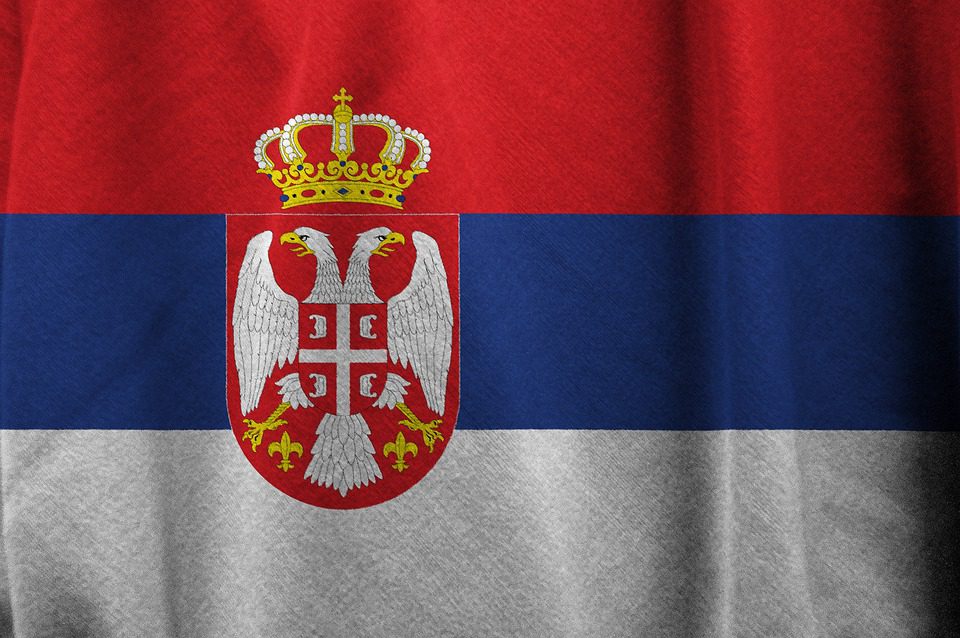Serbia Gambling Market
BELGRADE (Serbia), October 19 (SeeNews) - The International Monetary Fund (IMF) has improved its 2020 economic output forecast for Serbia and now envisages gross domestic product (GDP) to decline by a real 1.5% before rebounding to 5% in 2021, it said.
'These forecasts incorporate recent data showing a faster recovery than we anticipated earlier, and update the forecasts released with the IMF World Economic Outlook on October 13,' the head of the IMF Serbia team Jan Kees Martijn said in a statement on Friday, after the IMF staff-level agreement on policies needed to complete the fifth and final review under the Policy Coordination Instrument (PCI) for the country.
SERBIAN GAMBLING MARKET IN NUMBERS Posted on. At the begining of February, according to data from the Electronic Register of Games of Chance, the Serbian Ministry of Finance, as well as the Serbian Business Registers Agency, the Serbian gambling market generated revenues of approximately 44 billion dinars or 355 million euros. ORYX Gaming, a Bragg Gaming Group company, is entering the Bulgarian market after striking a deal with local operator Palms Bet. Palms Bet has been operating in the Bulgarian market for over six years and is a well-established and renowned brand in the country.
On October 13, the IMF said it expects Serbia's economic output to fall by 2.5% this year, revising its forecast for a 3.0% contraction made in April. The IMF expects Serbia's GDP to grow 5.5% in 2021, the Fund said in its latest World Economic Outlook (WEO) report, downgrading its April forecast for economic expansion of 7.5%.
'After some delays due to the pandemic, the implementation of structural reforms needs to be accelerated to secure strong and stable growth in the medium term. Ongoing efforts are needed to strengthen the tax administration, public investment management, and the monitoring and management of fiscal risks,' Martijn said.
Programme implementation has remained broadly on track and economic activity has rebounded following a sharp contraction in the second quarter of 2020 caused by the COVID-19 pandemic, supported by the monetary and financial measures and large fiscal package deployed in response to the crisis, the head of the IMF Serbia team noted.
Reforms of public sector wage and employment frameworks, which have faced substantial delays, should be completed, while enhancing the corporate governance of public enterprises, including state-run power utility EPS, and developing Serbia’s capital market remain vital, Martijn added.
'Progress towards completing the privatisation of Komercijalna Banka is welcome, and we encourage further efforts to privatise Petrohemija. Medium-term priorities to create conditions for faster private sector growth and convergence to EU income levels also include strengthening the rule of law and improving the court system.'
The mission agreed with the authorities on the key parameters of the 2021 budget, which has to strike a balance between sustaining the economic recovery and maintaining fiscal responsibility.
'In light of the ongoing economic rebound, a reduction in the fiscal deficit to 3% of GDP would be appropriate for the budget that is currently in preparation, ensuring that public debt in percent of GDP resumes a clear downward path. Within this budget envelope, scaling up public investment, including green investment, will not only support the recovery but also boost potential growth,' Martijn said.
To make room for a fiscal deficit reduction it is important that the public sector wage bill as a share of GDP declines to more sustainable levels, after rising in the last three years. Hence, increases in public sector wages should be limited in 2021. 'Pension increases should follow the agreed Swiss formula, and additional ad-hoc increases or payments should be avoided. Fiscal risks from SOEs need to be monitored closely, and any support to these companies should be provided transparently through the budget.'
Serbia Gambling Market Size
Serbia held virtual talks with the IMF mission to discuss fiscal, monetary and overall macroeconomic developments during October 5 - 16. Successful completion of the review is subject to meeting the remaining programme conditions, and approval by the IMF management and executive board. The board is tentatively scheduled to consider the review in early January 2021.

Serbia is a mostly gambling-friendly nation with a hodge-podge of gaming laws that little impact on internet gaming. The government does not endorse online gambling, but neither does it prosecute individual players. The end result is you can play almost anywhere you want without worry. The most important thing you can do to stay safe is choose a reputable betting site.
And on that note, I have a few recommendations below. Each of the sites you see below is regulated in its home country and has a long history of paying winners, hosting fair games and offering a solid all-around experience. Even though these are not local sites, they are all very well regulated and reputable.
Best Serbian Betting Sites
Serbia Gambling Marketplace

Serbia Gambling Markets

Betting Online with the Serbian Dinar
The Serbian dinar is not supported by any major gaming websites, but that does not change anything. All you have to do is choose a deposit method (credit card, Neteller, Skrill, etc.) and then make your deposit as normal. The gaming site will then convert your money to euros or US dollars and let you play as normal.
Currency exchanges do incur a small fee, but it’s not too bad overall. If you play online often, you should consider opening an e-wallet account to store funds online. Your e-wallet can be used to store funds in the euro or US dollar format so you can switch between different gaming sites without constantly converting your money to and from Serbian dinars.
Gambling Law in Serbia
Serbian lawmakers appear to be slowly warming up to the idea of legal online betting. Prior to 2005, the country’s gaming laws made no mention of internet gambling at all. That all changed in 2005 with the passage of the Games of Chance Act. This act formally recognized online betting for the first time and legalized the activity – but only for the government controlled monopoly provider.
Lawmakers revisited the act more than a decade later and issued the new Games of Chance Act in 2011. This law ended the government monopoly and paved the way for private operators to get licensed and offer real money games to Serbians in a legal environment. However, no gaming sites have yet received a license to operate in Serbia.

Many gaming sites located in other countries continue to accept Serbian customers despite a lack of licensing. Although they technically violate Serbian gaming laws, these international sites obey all laws where they’re located. Their argument is that they follow the law where they operate and have no obligation to follow Serbia’s laws. If Serbians choose to sign up and play, then so be it.
This is actually a pretty common situation in online gambling. There are many other countries in which the situation is basically the same. The host nation may not care for online betting, but sites located elsewhere are more than happy to accept customers from almost anywhere.
Serbian authorities did flirt with an ISP blacklist idea for a while. In 2012, various news sources reported that the government had a list of 70 online gambling websites that it demanded be blocked by local internet service providers. Some of the biggest betting operations in the world were named in the blacklist. Serbian ISPs resisted the order on legal grounds and nothing ever came of that.
The situation today is that online betting isn’t exactly legal, but it’s also not a crime to play online. Serbian gambling laws do not make it a crime to visit a website, place bets and get paid. The current status quo results in Serbians having access to a wide range of international betting websites. I do not know of any sites that support the Serbian language, but most larger sites do support some combination of English, Hungarian and Slovak among others.
In 2015, proposed amendments to the Law on Games of Chance were reported by iGaming Business here. These amendments could make it more troublesome for gamblers as it adds new prohibitions on using credit cards to participate in games abroad and for domestic banks to process transactions to/from foreign gaming sites.
Fortunately, the amendments were shot down before they could have made things difficult for Serbian gamblers. The United States took a similar measure with its own anti-gambling law in 2006 called the UIGEA. That legislation made it significantly more difficult for customers to fund their online betting accounts, but it never even came close to stopping 100% of deposits. Betting sites are very good at finding alternative payment options for customers.
For now, the status quo remains in Serbia. The government is obviously aware of online gambling and keen to act on it, but they don’t seem to place a priority on that issue at the moment. We will update this page if anything changes. In the meantime, we wish you good luck at the tables.